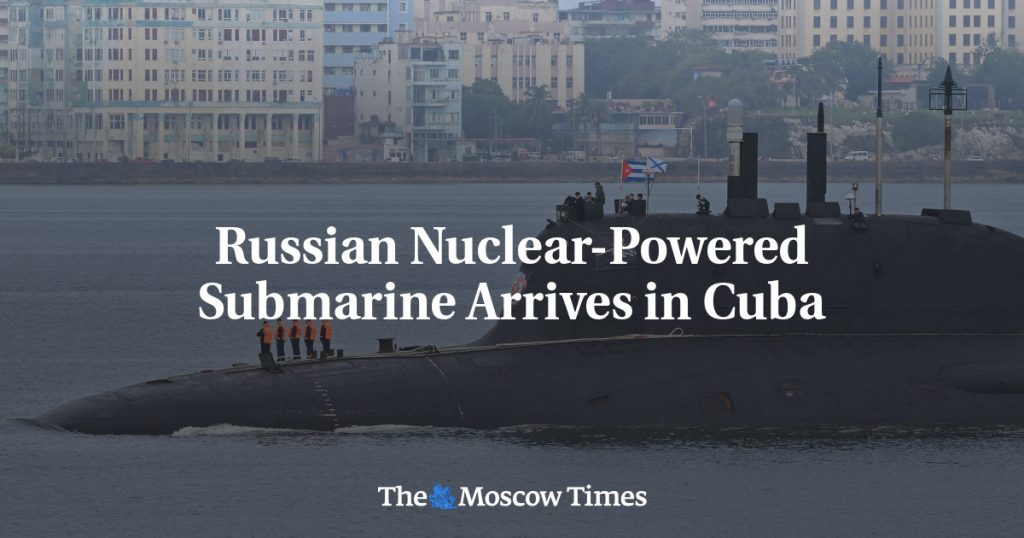A Russian nuclear-powered submarine and several naval vessels made their way to Cuba for a five-day visit, showcasing a display of strength amidst growing tensions between the United States and Russia. The submarine, named Kazan, was accompanied by the frigate Admiral Gorshkov, an oil tanker, and a salvage tug. The presence of these vessels could be seen off the coast of Havana, highlighting the proximity of the island to the southern coast of Florida.
Cuba’s communist government announced a meeting between Foreign Minister Bruno Rodriguez and his Russian counterpart Sergei Lavrov in Moscow on the same day as the naval visit, indicating a desire to strengthen ties between the two nations. Cuban President Miguel Diaz-Canel recently met with Russian President Vladimir Putin during the annual May 9 military parade in Red Square. The historical relationship between Cuba and Russia dates back to the Cold War era when Cuba served as an important client state for the Soviet Union, leading to the infamous Cuban Missile Crisis of 1962.
The deployment of Soviet nuclear missile sites in Cuba during the Cold War heightened tensions between the United States and Russia, nearly resulting in war. Since a meeting between Diaz-Canel and Putin in 2022, relations between Russia and Cuba have become closer, with both countries seeking to solidify their alliance. The recent naval visit and high-level meetings between officials from both nations signify a renewed commitment to bolstering their ties amidst global uncertainty and shifting geopolitical dynamics.
The Russian presence in Cuba comes at a time when U.S.-Russian relations have deteriorated, with ongoing disputes over a range of issues including cybersecurity, human rights, and military aggression. The show of force by Russia through the naval visit serves as a strategic move to assert its influence in the region and send a message to the United States and its allies. The arrival of the modern warships, including the Admiral Gorshkov, underscores Russia’s military capabilities and its willingness to project power beyond its own borders.
The friendship between Cuba and Russia is rooted in shared historical experiences and a mutual desire to counterbalance U.S. influence in the region. The recent meetings between officials from both countries signify a deepening of their relationship and a commitment to working together on various issues of mutual interest. The arrival of the Russian naval vessels in Cuba symbolizes the strength of their alliance and signals a united front in the face of international challenges.
In conclusion, the visit of the Russian naval vessels to Cuba reflects a broader geopolitical strategy aimed at strengthening ties between Russia and Cuba while asserting Russian influence in the Western Hemisphere. The display of military power serves as a reminder of Russia’s presence in the region and its commitment to supporting its allies. As U.S.-Russian tensions continue to escalate, the relationship between Cuba and Russia takes on added significance, highlighting the shifting dynamics of global politics and the strategic alliances being forged in response to changing threats and challenges.


